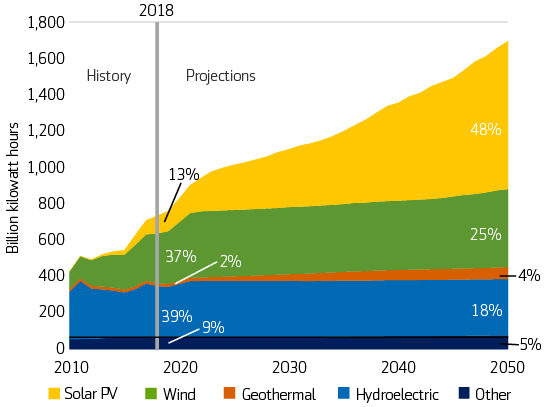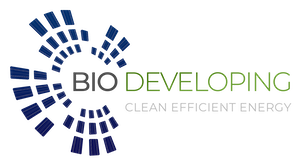To a lot of people in New Jersey, solar power, solar panels, and creating their own electricity is still something somewhat “futuristic”.
Well, today not only is it more and more common and “normal” to see properties in New Jersey powered by solar, but New Jersey is in fact one of the best places to install solar panels!
But if you still have a thought in the back of your mind that solar still seems pretty new as a concept, that’s because it is in fact quite futuristic.
And I don’t say that because all of NASA’s space stations are powered by solar. panels, but because solar technology is actually reshaping the way we – as a civilization – produce electricity.
A fact that both Thomas Edison and Albert Einstein predicted!
I recently studied an 80-page paper released by a major energy research and survey network that covered the transition of energy between 2019 and 2050.
Filled with details, the company did an extensive job at studying current trends and projecting them into the future, taking into account an enormous amount of information, possibilities, and scientific forecasts.
It would be impossible for me to give you a quick takeaway from such an elaborate report, but what I can say in a nutshell is that if you’re considering solar for your home or your business, you’re ahead of the curve!
I can also say with confidence that there’s never been a better time to switch to solar power than now – putting solar panels on your home or business.

One of the most obvious benefits of solar power is that it helps the environment. Burning fossil fuels to produce energy is the largest source of harmful gas emissions on the planet.
Recognizing the need to cut back on air pollution, many U.S. states, cities, and large corporations have invested a lot of effort into finding ways to use energy more efficiently and how to produce and use more renewable energy.
But how does this benefit you? The homeowner, the business owner, the everyday consumer?
Thanks to the surge in renewable energy and specifically solar power, a lot of research has been dedicated to making solar panels more efficient, more reliable, and most importantly affordable. Think about it!
No matter how much money governments or large corporations have, it would be impossible to make a major shift into using solar power if it didn’t add up financially.
To quote a piece of that report:
“The cost of technology decreases by a constant fraction with every doubling of capacity. This ‘learning curve’ effect occurs because ongoing market deployment brings greater experience, expertise, and industrial efficiencies, as well as further R&D. Wind and solar PV have experienced respective historical learning rates of 16% and 18% alone.”
Today, solar power is finally affordable and makes sense at every level, including for your home.
When speaking to homeowners, 99% of the time the cost of solar is one of the main questions I get asked. And where maybe 20 years I could not have said this, today solar makes sense financially almost 100% of the time.
But I also tell homeowners that the longer you wait, the fewer benefits you will have when you do make the switch.
Apart from solar being good for the environment and it making sense financially, even for you as a homeowner, there are also major tax credits and incentives that the federal government has issued to help you switch to solar. Unfortunately, those tax credits aren’t going to last forever.
In February 2021, Forbes wrote a series of articles covering today’s solar boom in which they wrote:
“The last year for the full 30% investment tax credit (ITC) was 2019, and now as of January 1, 2020, the ITC is reduced down to 26%, in 2021, it falls to 22%, and in 2022 it flatlines at 10% for utility and commercial-scale projects, but goes to 0% for residential projects. There was an attempt to get the solar tax credit extended at the end of 2019, but it failed to materialize.”
As you can see, as we move closer and closer to renewable goals set by the federal government the incentives surrounding solar start to fade away.
This, and several other benefits and incentives are why at Ensolar we encourage every homeowner we speak to, to go solar. Because for us it’s not a matter of if, but a matter of when.
Article by
Rebecca Samson
Editor, Bio Development




Recent Comments